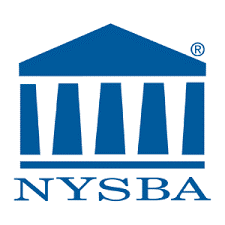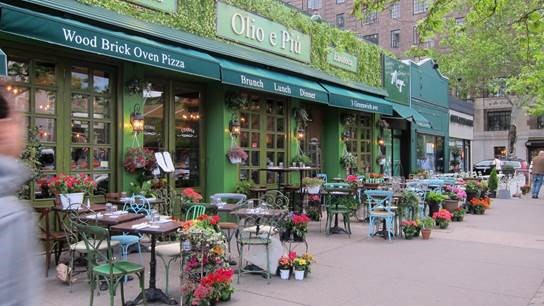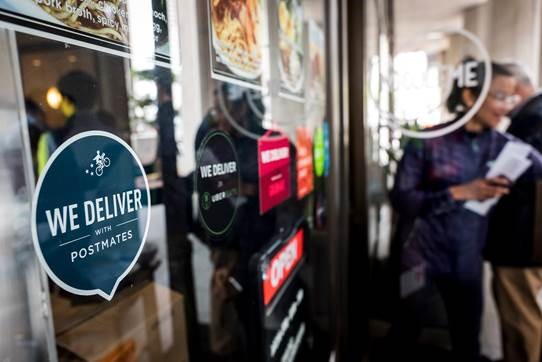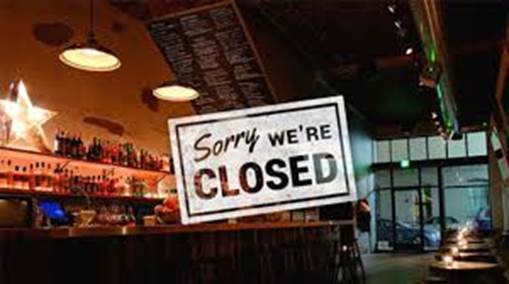On November 12, 2020, the New York State Bar Association is sponsoring a continuing legal education course on “Legal Challenges Facing Restaurants During and After a Pandemic.” The two hour, two credit course begins at 1pm. Topics to be discussed include navigating the ever change labor and employment laws, recent issues regarding restaurant leases and landlord-tenant issues, protecting a restaurant’s intellectual property, and Bernstein Redo, P.C.’s Donald Bernstein will review Covid-related rules relating to liquor licenses and indoor and outdoor seating guidelines. Registration is through the NYSBA’s website: https://nysba.org/events/legal-challenges-facing-restaurants-during-and-after-a-pandemic/
After stating yesterday that the date for opening indoor dining in New York City was uncertain, Governor Andrew Cuomo just announced this afternoon that it will be permitted as of September 30, 2020. There are restrictions that will be imposed, and he announced some of those today. All indoor dining will be restricted to 25% occupancy. By November 1, the Covid-19 infection rate will be reviewed with the possibility that occupancy could increase to 50%. The Governor warned, however, that the occupancy could also be cut back. The temperature of all patrons must be taken at the door, and at least one person in each party must give contract tracing. No bar service will be permitted; all bars must be used only as service bars meaning patrons will not be permitted to sit at or order drinks at the bar. All restaurants must close by no later than midnight. Restaurants will be expected to limit air circulation and have enhanced purification. The Governor has encouraged the public to report non-compliant restaurants. Accordingly, all restaurants will be required to post the telephone number of the task force that will be overseeing enforcement. This is a welcomed step in the right direction, as the restaurant industry has been reeling from the effects of Covid-19. We will provide updates as necessary.
Governor Andrew Cuomo and the New York State Liquor Authority issued new rules on outdoor dining in order to halt the spread of COVID-19. These more strict rules are in response to what is perceived to be non-compliance with social distancing and complaints about outdoor space turning into bars and street parties. The Governor ordered a “three strikes you’re out” initiative whereby any restaurant or bar that holds an on premises liquor license will have that license summarily suspended upon the occurrence of a third violation of the outdoor dining rules. Egregious conduct may result in a suspension before the third violation. The State Liquor Authority also modified its earlier rules which only required the food be available for sale for take-out, delivery, or outside dining. The new Guidance posted on the SLA website today requires that food be sold with an initial drink order by every patron. This is required for take-out as well. The minimum food requirement is salads, sandwiches and soups. A shareable food item is permitted if it is sufficient to serve the number of people in the party. Licensees are also required to ensure that no patron opens any closed container of alcohol, beer or wine within 100 feet of their premises. These new rules are all posted on the SLA website. https://sla.ny.gov/guidance-requirement-licensees-premises-service-privileges-serve-food-alcoholic-beverages
With outdoor restaurant use in New York City to be permitted as part of the Phase 2 reopening, which expected to be in late June or early July, the New York State Liquor Authority announced a new Guidance, effective June 4, 2020, to allow a restaurant to add available outdoor space to its license on a temporary basis. Generally, new space can only be used after approval of an Alteration Application, which can take many months. The new Guidance however requires no prior SLA approval in most instances. The licensee is required to file floor plans for the new outdoor space within five days. The Guidance requires that any consumption of food and/or beverage must be in outdoor, open-air areas, without a fixed roof (besides a temporary or seasonal awning or cover); food and/or beverages can only be consumed while seated at a table, bar, counter, or similar contrivance; all tables must be 6 feet apart; any seat at a bar, counter, or similar contrivance must be 6 feet apart; all staff of the licensed business must wear face masks at all times; and all customers must wear face masks at any time they are not seated. If, however, the existing license has a restriction against use of outdoor space, whether by agreement or stipulation with local municipality or the local community board, then use of the outdoor space must be approved in writing by that party. Moreover, if a permit is required under any municipal law by any other agency, that will also be required. The City Council is working now on legislation to expedite the process with the Department of Transportation and the Department of Consumer Affairs for permits to permit the use of public space.
The City Council took decisive, if temporary action this past week to assist the restaurant industry during the current COVID-19 pandemic. As reported here on April 15, 2020, the Council was considering capping third party delivery fees at 10% of the order. The final bill that passed modified that proposal under pressure from Grubhub and others. Third party providers cannot charge more than 5% for orders placed, and up to an additional 15% as a delivery charge. While more than the initially proposed 10% cap, it is less than the 30-40% that has been charged. Penalties for violations are steep, up to $1,000 per day.
The Council also sought to provide relief for restaurants that cannot afford rent during the current closure period, which is pretty much everyone. If a commercial tenant is in default in rent between March 7, 2020, and a specified date after the closure orders are lifted, a landlord cannot enforce any personal lease or rent guaranty for arrears during that period. There are also a number or anti-harassment measures enacted. The rules on personal guaranties leave open questions, and are not a long term solution. They do however give restaurants some breathing space and can be used as an entry point to negotiate with a landlord. How effective these rules will be remains uncertain, and they are likely to be challenged in court. We will continue to monitor these and other developments.
Even before the coronavirus, third party online delivery platforms were the target of proposed regulation. Some delivery apps, such as DoorDash, Grubhub, Postmates and Uber Eats, take between 10% to as much as 40% of delivery orders. The New York State Liquor Authority last year began formulating proposed limits on those profits. That has not been finalized. And a bill was proposed in the New York City Council earlier this year to limit a delivery platform’s share to 10%, which is still pending. Since the virus outbreak, the City of San Francisco has restricted their revenue share to 10%, and there is pressure on Mayor de Blasio to do the same. Adding to the pressure, on April 13, 2020, three New York residents filed a class action lawsuit in the U.S. District Court in Manhattan (Davitashvili v. Grubhub, Inc.) against four of the largest online meal ordering platforms seeking injunctive relief and damages under federal antitrust laws. The suit alleges that the delivery apps, which have become part of everyday life, force restaurants to charge higher prices for meal delivery items because of the defendant’s massive fees. The agreement restaurants are required to sign with the delivery services controls pricing both for in house dining and delivery, making it impossible for restaurants to compete by providing their own delivery systems. This, the restaurants say, cuts into their already thin profit margins which are at about 2% to 6%, and decreasing. The numbers become even worse as more than half of consumer restaurant spending will be off premises ordering rather than on premises dining. The suit also claims that the delivery apps monopolize the market for delivery workers. With the government ordered shut down of in house dining last month, restaurants are relying almost exclusively on delivery to survive. The third party delivery fees and their anticompetitive effects render restaurant profits negligible, and, the suit claims, “have contributed to demise of American restaurant culture.”
During this very difficult and trying time, first and foremost we want to express our hope that everyone is safe and healthy, and taking precautions to stay that way.
We recognize that the unprecedented government-ordered shut down of restaurants and bars that became effective Monday night at 8 p.m. is devastating and disastrous to business owners and their many faithful employees.
Here is what we know that we can pass on.
The Governor’s closure order allows restaurants to remain open for take-out and delivery only. Legally, a restaurant or bar can serve beer to go, but not spirits or wine, however, the Governor said that the state would allow wine and alcohol to be temporarily delivered or taken out. We contacted the New York State Liquor Authority for confirmation and they are formulating specific rules on this. We were told that the regulation will require the out going beverage to be sealed, only one per customer, and it must be ordered together with food. As we get more specifics, we will pass them on.
If you will have no take out or delivery during the next ninety days and will close down completely, you do not have to place your liquor license in safekeeping. Just make sure you keep the certificate in a safe place, to go back on the wall when you re-open.
The New York State Liquor Authority also determined today that it will allow liquor wholesalers to exchange liquor inventory purchased by retailers between March 1, 2020 and March 17, 2020 for a credit at the actual price paid.
The Authority is suspending all hearings. This includes 500 foot rule hearings and disciplinary matters, as its staff is being curtailed. It is unclear what the Authority will do about holding full board meetings. The upshot of this is that there will likely be an increased delay in obtaining approvals. In our conversations with the Authority, however, they acknowledged that they would like to avoid any more of a slowdown than already exists. How they will do this remains unclear.
Beyond licensing issues, we know that restaurants and bars have greater problems in dealing with loss of revenue, and yet having continuing obligations, not the least of which is rent. The Real Estate Board of New York, in an announcement made today joined by about thirty of its members, which include some of the largest real estate companies in the city, said that they would not commence eviction proceedings for non-payment of rent against residential tenants during the next ninety days. Our hope is that they appreciate equally the plight of their commercial tenants and will allow for some breathing space.
There remains an open question as to whether force majeure provisions in leases may absolve a tenant of rent obligations, a difficult position on which we are not expressing an opinion. Restaurant owners should consider putting their landlords on written notice and opening a dialogue sooner rather than later to discuss possible rent concessions or abatements. Other lease obligations, such as continuous operation clauses and minimum operating hours requirements should also be reviewed.
We will continue to post updates as they develop. We are in regular contact with the State Liquor Authority, and also will be in touch with the New York Nightlife Mayor’s Office to see how the city may offer help in addition to the small business loans that the city began offering last week.
We understand that you are in survival mode. If there is any .way we can help, or if you have any specific questions, please reach out to any of us.
Alcohol and ice cream is not a new phenomenon in New York. Since 2018, Gilligan’s Ice Cream in Sherburne, New York, has been adding beer and hard cider to its ice cream, with flavors such as Fireball Whiskey. Tipsy Scoop opened at 270 Metropolitan Avenue in Brooklyn in September 2019. They boast of blending “the magic of an artisanal, hand crafted ice cream with the mastery of a perfectly mixed cocktail.” Flavors include Cake Batter Vodka Martini and Vanilla Bean Bourbon. Other establishments, such as Morgenstern’s on West Houston Street, UES on Second Avenue, Oddfellows on Water Street in DUMBO, and Bona Bona in Port Chester all are licensed to serve alcohol on their premises. The New York State Liquor Authority, since at least January 2019, has not considered a confectionary with 5% or less alcohol content an alcoholic beverage. There is a bill that unanimously just passed the New York State Senate (S7013) amending a number of statutes to make this state law. This would apply to sealed packages of ice cream, as well as ice cream products sold in restaurants or ice cream shops. The bill is awaiting action by the New York State Assembly.
Donald Bernstein, of Bernstein Redo, P.C., will be moderating a panel at the Bar Association of the City of New York on January 22, 2020 at 9 a.m. on “Opening a Restaurant in New York City; Legal Issues Bootcamp.” This continuing legal education course, sponsored by the Hospitality Committee of the City Bar Association, will feature four speakers. Topics include corporate issues, drafting and negotiating a restaurant lease, labor and employment issues particular to restaurants, and a segment on retail liquor licenses which will be covered by Mr. Bernstein. It is a four hour course offering four CLE credits to attorneys. Registration is through the City Bar Association.
Two significant changes in New York’s liquor laws have been proposed by Governor Andrew Cuomo in his 2020 State of the State message. The first relates to the tied house rule, a post-Prohibition law that prohibits anyone having any interest in a liquor manufacturer or wholesaler from having an interest in a retail liquor license. This rule is an absolute prohibition under current law, and even a de minimus interest is unlawful. Under the new proposal, the rule would only apply if the retailer is “wholly owned” by the manufacturer or wholesaler. This would not disqualify an investor from having a tied-house interest if the retailer is not wholly owned by the manufacturer or retailer. The second proposed change is to license motion picture theaters. Under current law, a movie theater can only serve alcoholic beverages if it meets the definition of a restaurant, that is serving full meals out of a kitchen in the charge of a chef. The current proposal would impose some restrictions, but would remove the restaurant requirement. We will be tracking these proposals to see if they become law.










